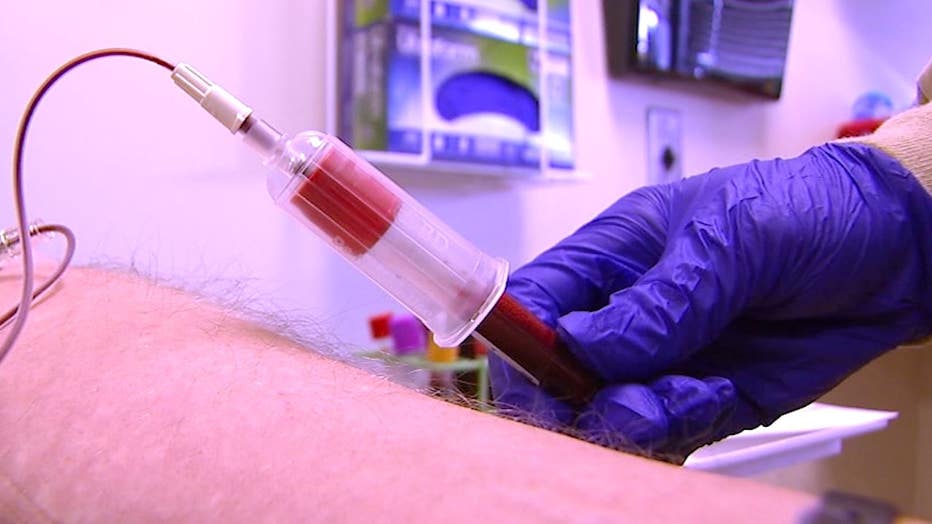A blood test could detect dozens of cancers, but one expert is not recommending it, yet
Simple cancer blood test
Cancer screening has evolved quickly and there are now dozens of blood tests in the works that may be able to screen for dozens of types of cancer with a single blood test. They call these liquid biopsies "multi-cancer early detection tests."
AtLANTA - Dozens of types of cancer could be uncovered by a single blood sample. It is a simple test with huge promise that could detect cancers for which there are no screening tools currently.
Dr. Ernest Hawk, vice president of cancer prevention at the University of Texas MD Anderson Cancer Center says these tests are known as multi-cancer early detection (MCED) test.
They are designed to measure different biological signals, or biomarkers, in the blood that are shed by cancer cells, pinpointing the possible presence of cancer in the body.
"It's potentially revolutionary technology," Dr. Hawk says.
"The idea is that, fundamentally, these tests will be able to help us find cancer, more cancers."
Blood test could detect cancers
Hawk says there are about 20 MCED tests still in development.
One, the Galleri by Grail, is available by prescription from a doctor, and retails for $941, which is typically paid out of pocket.
The test manufacturer says its liquid biopsy screens for a signal in the blood shared over 50 types of cancer.
The company cautions on its website its test does not detect a signal for all cancers, and not all cancers can be detected in the blood.
The company also says false positive and false negative results can occur.
Still, Dr. Hawk says being able to pick up on signs of 50+ cancers would be a major step forward.

"That would be a huge advance, because right now we can only screen for cancer in five or six organs," Dr. Hawk says.
Importance of early cancer detection
The American Cancer Society says there are proven screening tests for breast, cervical, colorectal, prostate, and lung cancer, but most cancers do not have early detection screenings.
Still, Dr. Hawks says, the MCED tests have limitations.
"They're quite good at identifying individuals with advanced-stage cancer, but they're not as sensitive for early-stage cancer," Hawk says. "And that's the worry, is that this is going to find a lot of late-stage cancers, but it won't materially change the outcome of someone because you're picking it up too late."
It is too early to say if the tests will ultimately save lives.
And, he says, although they can pick up on signals in the blood that point to the presence of cancer, you still have to find the cancer.
"Every time you have a positive blood signal, if you don't know where the signal is coming from, you're going to be in a little bit of a diagnostic odyssey to figure out where is that signal coming from," Dr. Hawk says.
So, while the potential, and the need for better cancer screening tests is huge, Hawk says the jury is still out.
"If you asked MD Anderson, or most cancer centers, they would not recommend these tests for screening individuals at this time," he says. "That is not to say that we won't in the future, but there's no data on whether they're useful or harmful, frankly, for individuals right now."

